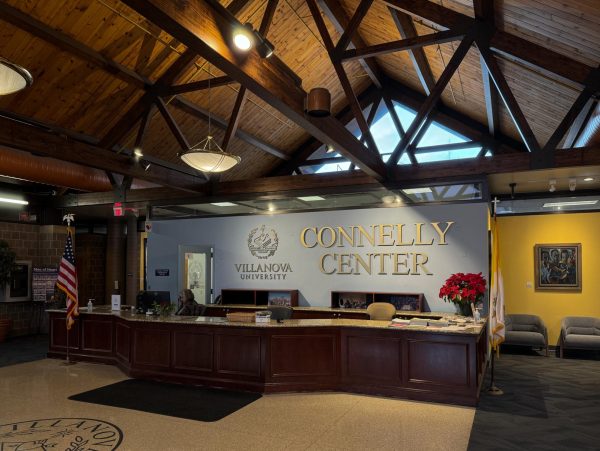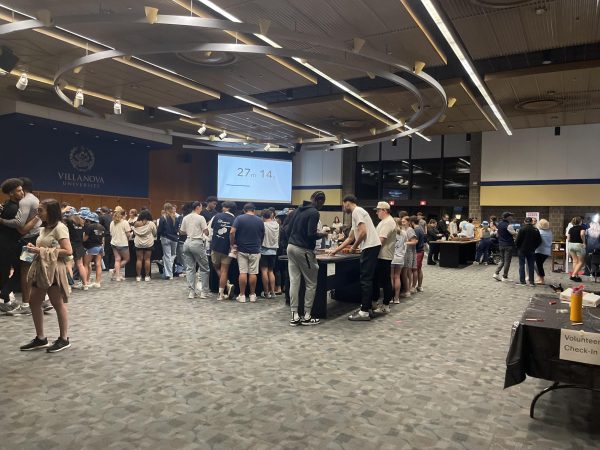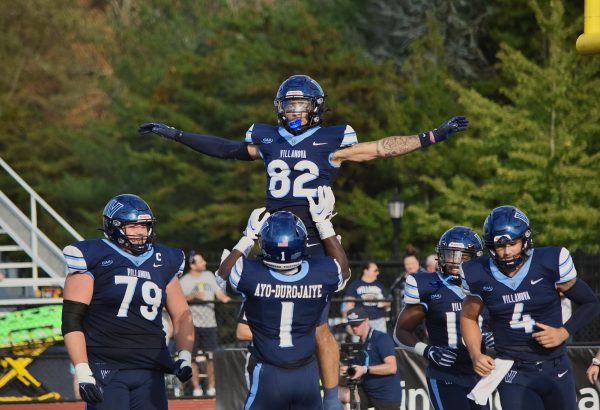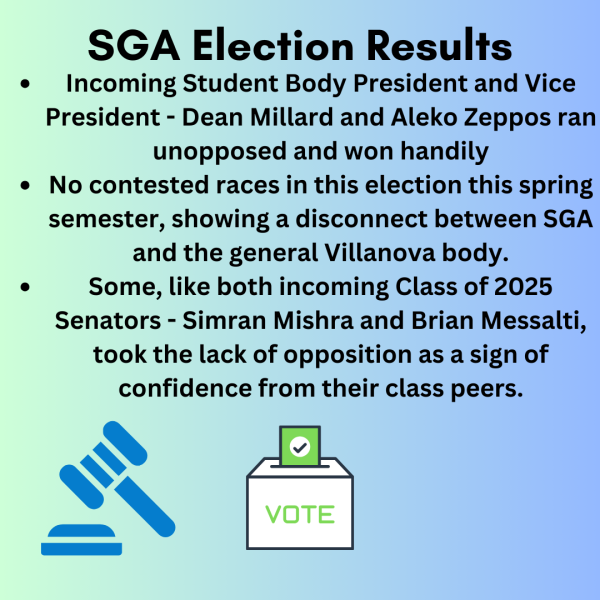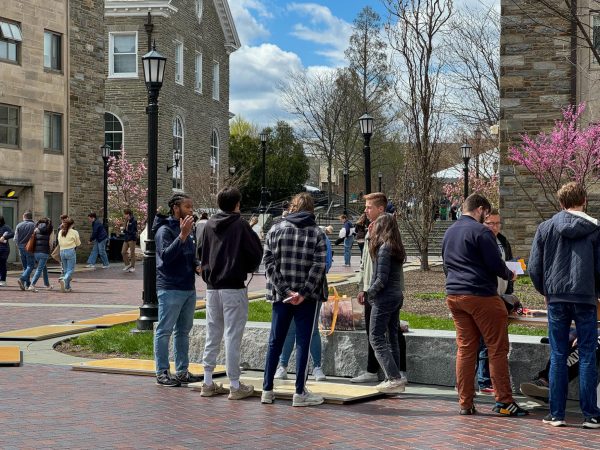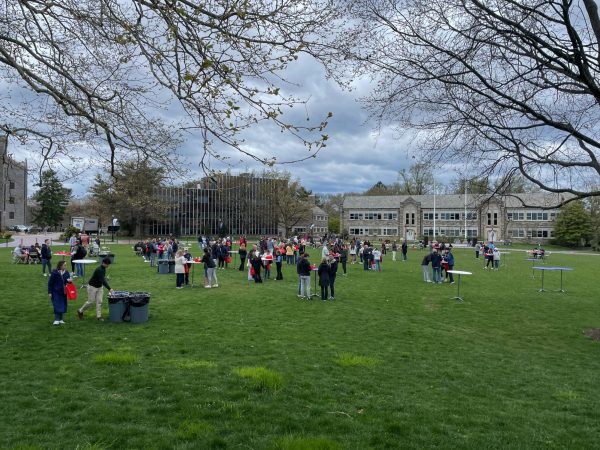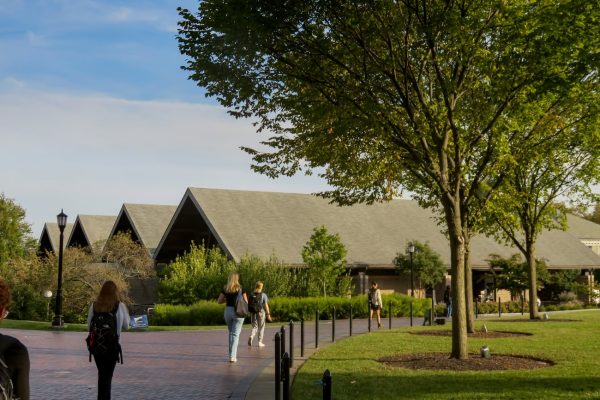Mental Health On Campus: Villanova Students Share Their Stories
May 1, 2019
You can read our special report here: https://www.villanovan.com/news/special-report-mental-health-on-campus/article_95652fb8-6c16-11e9-8830-93e9dbd869d1.html
“The things that made me happy didn’t make me happy anymore.”
Growing up, Will Summers remembers his sister speaking openly about mental health, but he never related to her struggles with it. “I didn’t think it was something that could affect me,” he said. After a series of family health issues during his junior year, he realized that he constantly felt sad, but initially wrote his feelings off as a natural reaction to the situation. Finally, a suicidal episode helped him to realize that he needed to seek help. “My whole journey was a lot of denial,” Summers said. “And then, I got to a point where I couldn’t deny it anymore because it was too dangerous to do that. I didn’t accept that my problems had been valid, but they were.” Since getting the help he needed, Summer has become outspoken about his struggles with mental health, in hopes of helping others who are dealing with similar plights. “It’s hard for me to give advice to people,” he said. “I don’t what you’re going through, but I can tell you my story and see what sticks, what helps you.”
“I decided I wanted to do something.”
Following the deaths of two University students, sophomore Sally McNamara was frustrated that there wasn’t more conversation about mental health on campus. She decided to take charge and organized an event through her platform within the University’s Kappa Delta chapter. The result was the “Let’s Talk About It” event, which featured a speaker from the organization Minding Your Mind and testimonials from several KD members. McNamara also sent out a survey for chapter members to anonymously share their opinions and experiences with mental health. “The main thing I found is that a lot of people just want more awareness and more conversation about it,” she said, “because I think a lot of times people don’t realize how prevalent this issue is.” McNamara hopes to continue the initiative and plan more events for the fall semester. “I just thought it was something that is not talked about, specifically among Greek life,” she said. “Going forward, I really want to try to get the frats more involved with this.”
“Just because it’s not that severe at this point doesn’t mean you shouldn’t seek out help.”
After struggling with the transition into college, junior Katie Eamer found sessions at the Counseling Center helpful in combating the anxiety and homesickness she was experiencing. This year, facing another major transition as she prepares to spend the summer in New York City for an internship, Eamer found her feelings of anxiety returning. Initially, she said that she struggled to accept that she should return to counseling. “It’s easy to say ‘I’m not in such a bad state that I can’t operate on a day to day basis. I’m still living my life, so I don’t think I’m deserving of getting any help.’” Ultimately, conversations with her family and friends helped her to realize that it was okay to seek help. She said both experiences were instrumental in helping her to manage her anxiety. “There’s things that my counselor was able to recognize that I would never have figured out by myself,” Eamer said. “You can completely unload whatever you need to talk about. It 100% changed my outlook.”
“It becomes a lot to handle on your own.”
For student athletes like senior Haley, the combined pressures of academic and athletic requirements can have major negative impacts on mental health. “The pressure can really start to cause anxiety, and that’s one of the things that I’ve experienced,” she said. “As an athlete, you are expected to kind of thrive under pressure, but when you pair that with academics and everything else that is expected of you, it definitely can take a toll on your mental health. It is something that can keep you up at night if you are not performing well.” She said identifying stress relievers and strong support resources is crucial. “I think it’s important to have people just like in your circle that you can talk to on the same level as a counselor, because they know you and know when you need to have a conversation with them and just talk things through. I think that’s what has helped me the most.”
“I know how painful it can be.”
After taking a medical leave during the spring of his freshman year to deal with anxiety and depression, junior Jeff Lieto found his feelings of depression intensifying to debilitating levels this past fall. “I would go to the library and sit there from 7:00 PM to 4:00 AM just sitting at my computer, blank screen, anxiety crippling my body and just not being able to do anything. And then days when I would want to go to class, but I couldn’t get out of bed.” He realized that he needed to devote time to seriously focus on his mental health and get the help he needed, and after taking the past semester off, he said, “I’m actually feeling better for the first time in years.” He now speaks openly about his struggles, including in an op-ed published in The Villanovan earlier this semester, and hopes to inspire others to take time to deal with the things they are struggling with. “I know what it’s like to not totally try to heal myself and focus on myself and I know how painful it can be. I look back and regret that I didn’t get any help sooner.”
“You know other people are going through what you are going through.”
For Emily, the transition to college was difficult. She found the social environment to be hierarchical and suffered depressive episodes. “Personally, I didn’t feel like I belonged here for a long time,” she said. Ultimately, attending sessions at the Counseling Center and realizing that others were dealing with similar struggles helped her to adjust. “When I go to the counseling center it’s always full,” she said. “There’s always other people there. You know other people are going through what you are going through.” She hopes societal perceptions of mental health continue to shift in a positive direction. “Mental health is just as, if not more important, than physical health. It’s kind of an invisible disease, but it’s still a disease. People see it often as a weakness, but you wouldn’t say because someone broke their leg that they are weak.”
“We wanted something that was very visible because mental health tends to be an invisible thing.”
Jane Crager, a junior at Villanova—along with her sisters Lily Crager at Fairfield University and Katie Crager at Georgetown University—has worked to the spread mental health awareness in a unique fashion. That is, through the creation of a tee-shirt company named Undiagnosed Tees, the sisters have worked to change the perceptions surrounding mental health. The student-started company creates bold shirts which remove the tags of the stereotypes pertaining to mental health. “We wanted something that was very visible because mental health tends to be an invisible thing,” Jane said. “Something you can hide. But if you’re wearing it on your chest saying, ‘No, no, I’m an advocate. I do have a mental disorder. But, you know what, I’m not ashamed about it. I’m wearing it, and I want to talk about it.’” “We want to get our message to reach people in a way that’s not the same thing they’ve been hearing, but something different and something that kind of shatters this expectation to be polite and that all conversations have to go a certain way, and we kind of say, no, it doesn’t. If that’s not working, which it hasn’t been, we open up the conversation around mental health to many different voices, and some of the voices are louder and more direct than others. Jane attributes the brand’s authenticity as derived by her and her family’s personal dealings with mental health. “I think the authenticity part was really something that we focused in on because we see that it is one of the major problems in schools, and the way they deal with mental health in schools— how they’re kind of failing,” Jane said. “And it’s because a lot of the language is shallow and a little bit surface level.” Concerning the University’s response, Jane thought it is more reactive than proactive. “I don’t think Villanova does nothing. They do, but it’s just not effective, and, to be fair, like no one has really found a solution to this problem. It’s a problem, and I don’t think there’s one solution per say. But, I think there’s just more that can be done.” Jane emphasized that this is a problem everywhere and that nobody has the one, cure-all solution.



